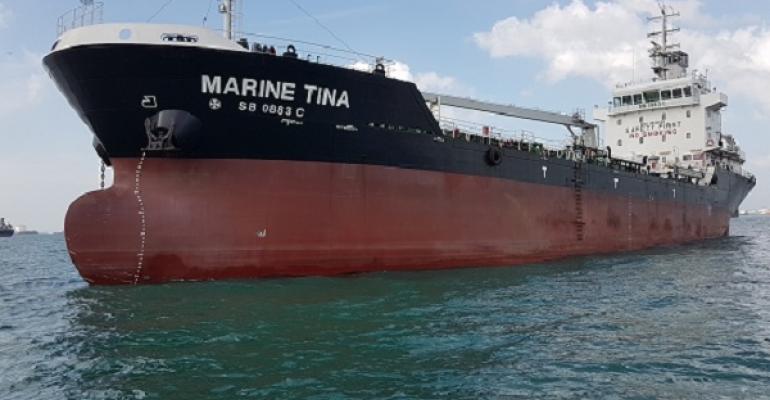The announcement was made by assistant ce (Operations) M Segar at the International Bunker Industry Association (IBIA) Asia Gala Dinner, part of Singapore Maritime Week 2018.
The use of the MFM system will enhance transparency in the bunkering process, improve operational efficiency and increase the productivity of the bunkering industry, MPA said. Similar to the use of MFM for marine fuel oil (MFO) delivery, the use of MFM for distillates will provide better assurance to both the bunker buyers and suppliers on the quantity of bunker delivered, and safeguard Singapore's reputation as the world's top bunkering port. The Singapore Shipping Association and the IBIA support this initiative.
Positive feedback
“The industry has given positive feedback on the mandatory use of MFM for MFO. As the world’s top bunkering port, it is important that we continue to set the highest bunkering standards to ensure fuel quality and reliability and this can be achieved through the use of MFM. This will also prepare the industry for an expected increase in delivery of distillates with the introduction of a 0.5% global sulphur cap from January 1 2020 by the International Maritime Organization. We will continue to work closely with all our stakeholders to prepare the bunkering industry for the future,” said Segar.
To ensure that the MFM system is suitable for delivery of distillates, the MFM Working Group – jointly initiated by MPA and Enterprise Singapore and consisting of members from Weights and Measure Office (WMO) of Enterprise Singapore, National Metrology Centre @ A*Star (NMC) and various stakeholders in the bunkering industry – had tested the system on five bunker tankers, and tests were completed in October 2017.
With effect from 1 July 2019, all existing distillates bunker tankers supplying to ocean-going ships in the Port of Singapore must be fitted with an MPA-approved MFM system. All new bunker tankers applying for the Harbour Craft (Bunker Tanker) licence will be required to be fitted with the MPA-approved MFM system.
Since 2014, MPA has invested close to SGD17m ($12.8m) to help the industry adopt the use of the MFM system for delivery of bunker in the Port of Singapore.
Read More: MPA pumps in another $9m to LNG development programme
To defray part of the cost in installing the MFM system, companies may apply for co-funding of up to SGD60,000 from MPA for each existing distillates bunker tanker and MPA has set aside SGD9m to co-fund this initiative.
Segar added that MPA is also keeping up with the trend towards digitalisation, leveraging on the electronic-Bunker Delivery Note (e-BDN) to further improve the efficiency and productivity of bunkering operations. The e-BDN could also lead to exploring the use of new technology to promote further transparency, such as Blockchain.
“To date, we have completed preliminary assessment of data transmission from one bunker tanker installed with MFM to MPA’s server. We will be embarking on a pilot run to test another five bunker tankers and we encourage interested industry players to come forward if you are keen to participate in the pilot run,” Segar urged.
Sulphur cap challenges
Finally, Segar also took note of the challenges the industry will face with the 2020 global sulphur cap coming up. “As a leading global hub port and international maritime centre, Singapore is committed to provide a broad range of solutions to meet the energy needs of the global shipping industry,” he said.
As ship owners have recognised Liquefied Natural Gas (LNG) as one viable solution, MPA last December invested a further SGD12m in LNG bunkering to ensure the availability of LNG supply in Singapore.
Half of this will be used to co-fund the construction of new LNG bunker vessels (LBVs) to facilitate the development of ship-to-ship LNG bunkering while the other half will be used to top up its existing co-funding programme to support the building of LNG-fuelled vessels.
Copyright © 2024. All rights reserved. Seatrade, a trading name of Informa Markets (UK) Limited. Add Seatrade Maritime News to your Google News feed.



